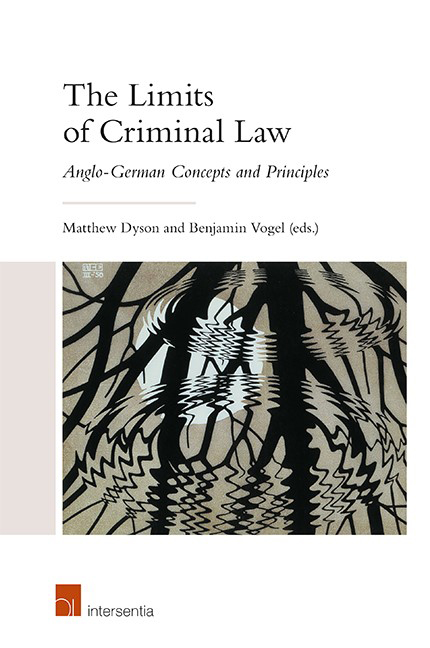Book contents
- Frontmatter
- Preface
- Contents
- List of Cases
- List of Abbreviations
- List of Contributors
- Chapter 1 Introduction
- PART I CORE PRINCIPLES OF CRIMINAL LAW
- PART II CRIME AND TORT
- PART III CRIME AND MEDICAL
- PART IV CRIME AND REGULATION
- PART V ADMINISTRATIVE SANCTIONS
- PART VI ALTERNATIVE ENFORCEMENT
- PART VII COUNTER-TERRORISM
- PART VIII CRIME AND INTELLIGENCE
- PART IX CONCLUSION
- Index
- About the Editors
Chapter 1 - Introduction
Published online by Cambridge University Press: 11 February 2021
- Frontmatter
- Preface
- Contents
- List of Cases
- List of Abbreviations
- List of Contributors
- Chapter 1 Introduction
- PART I CORE PRINCIPLES OF CRIMINAL LAW
- PART II CRIME AND TORT
- PART III CRIME AND MEDICAL
- PART IV CRIME AND REGULATION
- PART V ADMINISTRATIVE SANCTIONS
- PART VI ALTERNATIVE ENFORCEMENT
- PART VII COUNTER-TERRORISM
- PART VIII CRIME AND INTELLIGENCE
- PART IX CONCLUSION
- Index
- About the Editors
Summary
PURPOSE
What are the limits of criminal law? What can we learn by examining where criminal law should, and does, end, and another area of law begins? Which normative principles characterise criminal law? Who defines them? How persistent are those principles over time? Why do they change? In a sense, the limits of the criminal law are the points beyond which we are no longer bound by whatever criminal law principles and sanctions can do.
These are the questions this volume addresses, looking at the law of England and Wales and of Germany. The purpose of the term ‘limits’ is to focus not on the traditional core of criminal law, the general part and well-known offences like murder and criminal damage, but at the areas where and reasons why we think criminal law ends and something else begins. In effect, our task is to look at the limits, in order to establish what constitutes the core. The book is divided into eight pairs of chapters, covering eight topics from the perspective of both the law of England and Wales and that of Germany. Each pair of chapters explores a substantive place as a lens for understanding criminal law through its relationship with a neighbouring area of law, and explores the reasons whether and why criminal law finds its limits there.
The limits of criminal law are important for understanding what criminal law does, since they shape our justifications for the functioning of the criminal law and its legitimacy. They restrain the state and protect the individual; they define the space of lawful action. They can take many forms and have diverse characteristics, and that variation can make them hard to ascertain. In particular, this volume has been partly motivated by a growing need to define more clearly the scope of application and the guarantees of the criminal law. Political discourses are increasingly focused on the prevention of risk instead of merely responding to harms already done, which in turn draws them away from traditional criminal law theory. The internationalisation of criminal endeavours also complicates enforcement, with knock-on effects on what substantive rules are effective.
- Type
- Chapter
- Information
- The Limits of Criminal LawAnglo-German Concepts and Principles, pp. 1 - 6Publisher: IntersentiaPrint publication year: 2020

